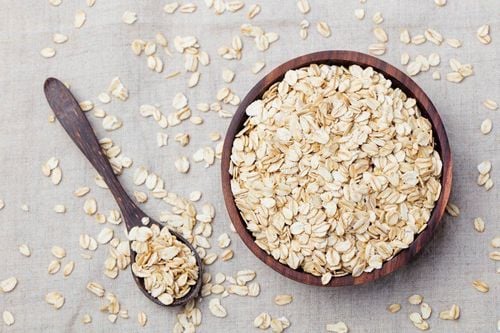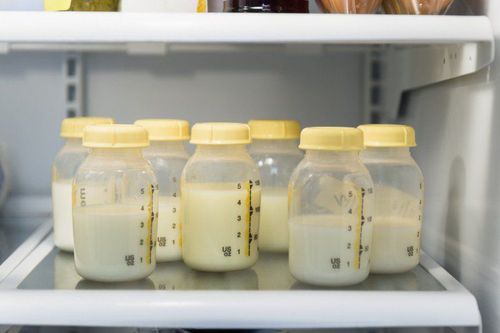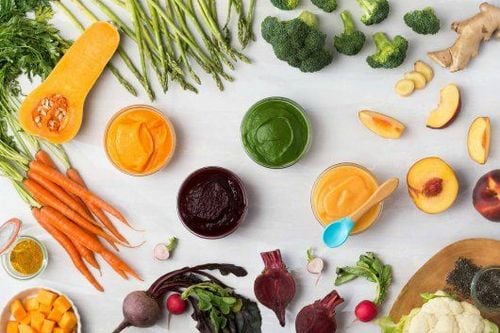For a long time, olive oil has been known to have excellent benefits for health, skin, and hair. So should parents give their children olive oil regularly?
1. What are the effects of olive oil on children's health?
Olive oil is a fat obtained from processing the fruit of the olea europaea tree (originating from the Mediterranean region). Pure olive oil is produced through mechanical methods, meaning no chemicals are used and it does not go through any heat treatment processes.
1.1 What are the nutritional components of olive oil?
One tablespoon of olive oil contains: 119 calories, 13.5g fat, 2g saturated fat, 1.8mg vitamin E, 8.1mg vitamin K. Additionally, olive oil contains oleic acid, linoleic acid, palmitic acid, alpha-linolenic acid, and stearic acid.
1.2 Benefits of giving children olive oil
Children's health is always a top priority for parents. Here are several reasons explaining why olive oil should be added to children's diet:
- Significantly reduces symptoms of Attention Deficit Hyperactivity Disorder (ADHD): Several global studies show that olive oil can help children cope better with ADHD symptoms;
- Helps brain development: Olive oil contains many Omega acids, helping strengthen children's brain development;
- Rich in vitamins: Young children need sufficient vitamins to keep up with growth. Olive oil contains many vitamins like A, B, D, E,... Vitamin A provides children with healthy eyes, B vitamins help brain development, vitamin D helps strengthen bones,...
- Prevents cardiovascular diseases and cancer: Olive oil has high levels of polyphenols - natural antioxidants that help reduce triglyceride levels in the body, contributing to cardiovascular health. Additionally, polyphenols can repair damaged tissues, reducing cancer risk;
- Helps maintain healthy skin and hair: The antioxidant squalene in olive oil helps keep children's skin and hair healthy;
- Rich in calories: Olive oil is calorie-rich and can well meet children's daily energy needs;
- Reduces obesity risk: Some studies show that children with diets containing olive oil are less likely to be obese (due to beneficial fatty acids in olive oil).
With these effects, the answer to whether children should eat olive oil regularly is yes.

3. How should children use olive oil?
Children can use olive oil at different stages. Specifically:
3.1 When the baby is still a fetus
When the baby is still in the womb, pregnant women can use olive oil as it's safe for expectant mothers. This oil contains vitamin A - an antioxidant that helps protect pregnant women from infection risks during pregnancy. Simultaneously, vitamin A is also a vitamin that helps babies have healthy eyes right from the womb. Notably, the high Omega fat content in olive oil also helps improve height, weight, and brain development of the baby, helping the fetus develop comprehensively.
The vitamin E content in olive oil helps pregnant women fight oxidation to maintain a safe pregnancy and deliver healthy babies. If pregnant women regularly consume olive oil during pregnancy, their babies will develop and have better psychological reflexes compared to those whose mothers don't consume olive oil.
Therefore, from pregnancy, mothers should use olive oil in daily cooking, use it for salad dressing instead of regular oils. Pregnant women should consume about 10 ml of olive oil daily.
3.2 During the baby's complementary feeding stage
When babies reach 6 months old, they begin complementary feeding. At this time, mothers can use olive oil in baby's food by adding it to their meals. Olive oil contains Omega-3 and Omega-6 similar to fats in breast milk, helping babies develop their brain, nerves, perfect stomach function, prevent constipation and stomach cramps common in young children. Parents can use olive oil to prepare complementary foods for young children such as mixing with carrots, potatoes, mashed pumpkin,... When babies can eat solid food, mothers should use olive oil for frying, sautéing, drizzling on bread instead of butter, or adding to yogurt to provide complete nutrition for babies.
Should babies use olive oil regularly? The answer is yes, but the amount needs to be controlled appropriately for babies. Babies from 6-12 months can use 10ml-15ml olive oil per day, divided into 3 meals/day, no more than 5 ml per meal. For children over 1 year old, parents can increase the amount of olive oil in each meal up to 10 ml, not exceeding 30 ml/day. Pure olive oil is nutritious but has a slightly strong smell that many children won't eat. Therefore, parents should choose pure olive oil specially formulated for children with a mild smell, helping children eat more appetizingly.

3.3 Other ways to use olive oil for children
Besides adding to diet, children can also use olive oil for:
- Massage: Olive oil is used for skin massage, helping moisturize, regenerate dead tissue layers and maintain children's skin always smooth and healthy. For children with diaper rash, parents can use olive oil to apply to the rash area to soothe the skin;
- Hair washing: Olive oil can also be used as a shampoo for young children to reduce seborrheic dermatitis (a type of skin inflammation) on the scalp. After washing and massaging the seborrheic dermatitis scalp with olive oil, wash the child's hair again with mild shampoo and warm water. For children with severe seborrheic dermatitis on the scalp, parents can leave olive oil on the child's hair and scalp overnight;
- Soothing coughs: Olive oil when combined with rosemary, mint, eucalyptus essential oils can be used to massage chest and back for young children, soothing coughs to help babies sleep better;
- Intravenous nutrition for premature infants: Some clinical trials also indicate that olive oil can be combined with soybean oil for parenteral nutrition (intravenous) for premature infants because this oil mixture has similar lipid content to breast milk. Experts also recommend using olive oil for children with low birth weight or babies who have difficulty breastfeeding.
3.4 Notes when giving children olive oil
- Parents should give children olive oil instead of animal fat to prevent obesity in children;
- To use olive oil correctly for children, parents should choose olive oil specially formulated for babies because this type of oil adds appropriate vitamin and nutrient ratios for baby's development;
- If frying or sautéing food for children, parents should choose Refined olive oil because it can withstand high temperatures, up to 210°C. With pure olive oil (virgin and extra-virgin) or olive oil specially formulated for children, parents should use directly like mixing salad, mixing into food, drizzling on bread, sauces,... when already cooked or only cook at low or medium temperature;
- Parents should only buy olive oil in dark glass bottles, with small volume (about 250ml) and should use up within 30 days after opening the bottle to ensure oil freshness. Besides, because temperature and light can easily reduce nutrient contents in olive oil, parents need to store the baby's oil bottle in a dry, cool place, away from high temperature areas and direct sunlight.
The question: Should children eat olive oil regularly? With many health benefits, olive oil can be added to children's daily diet. Parents should use olive oil produced specifically for children to ensure babies absorb nutrients well from the oil and develop healthily.
Additionally, parents also need to pay attention to supplementing necessary micronutrients such as: Selenium, Chromium, Vitamin B1 and B6, Ginger, acerola extract (vitamin C),... Especially bioavailable zinc to improve taste, help children eat well, achieve and exceed standard height and weight, strong immune system, enhance resistance to reduce minor illnesses and digestive issues.
To arrange an appointment, please call HOTLINE or make your reservation directly HERE. You may also download the MyVinmec app to schedule appointments faster and manage your reservations more conveniently.













